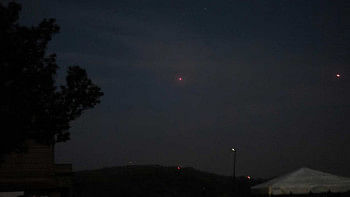Power shortage more acute in rural areas

With the weather getting warmer, power crisis is growing across the country and some rural areas have been experiencing prolonged loadshedding since last week.
Residents of different divisional cities are facing at least an hour of power cuts every day. It is six to seven hours in some rural areas as the mercury hovers around 36 to 38 degrees Celsius in some districts.
The power shortages have also started to affect businesses and irrigation.
As of 3:00pm yesterday, Bangladesh Power Development Board (PDB) generated around 12,700MW electricity against the demand for 14,300MW, which is about 1,600MW shy of the demand.
The situation was similar last week, with highest 1,826MW loadshedding reported on Tuesday, PDB data show.
PDB officials said they are prioritising Dhaka and other divisional cities to supply electricity.
"Except for the two distribution companies in Dhaka [DPDC and DESCO], all five distributors are getting less electricity compared to their demand," a top PDB official told The Daily Star, wishing anonymity.
Bangladesh Rural Electrification Board (REB), the largest power distributor which supplies electricity in rural areas, is getting around 25 percent less than its demand.
More than half the country's consumers are under REB coverage.
The 25 percent supply shortfall means rural areas are facing five to six hours' loadshedding every day, according to multiple REB officials.
Mymensingh zone is among the worst affected, facing up to seven hours of loadshedding some days. There are not enough power plants in the zone.
Shahid Uddin, general manager of Mymensingh Palli Bidyut Samity-1 (Muktagachha), said they are receiving about 40 percent less than the daily demand.
"It has been severe here since last week," he said.
Rashidul Hasan, a migrant worker in Singapore now visiting his village in Muktagachha, said since he came home in March, there have been power cuts six to eight times spanning four to five hours a day.
"It is unbearable now. The summer is still to come. I don't know what will be the situation then," he said.
The power shortage is also hampering irrigation of Boro paddy, said Md Azizul Islam, a schoolteacher in Rupshi village of Phulpur upazila, also in Mymensingh.
Akmal Hossain, general manager of Mymensingh Palli Bidyut Samity-2 that covers Bhaluka, said they get supply of 250MW to 275MW/day against the demand for 325MW.
PDB itself supplies electricity in some areas of Mymensingh.
Its Executive Engineer of Sales and Distribution Division-2 (South) in Mymensingh, Subrata Roy, said their daily supply is now 1,100MW, about 200MW short of the demand.
At the heart of the problem is gas shortage, said PDB member (generation) Khandaker Mokammel Hossain.
"We have requisition for around 1,200mmcfd (million cubic feet a day), but we get around 990mmcfd. One Floating Storage and Regasification Unit is under maintenance. The situation will improve when gas supply resumes in a day or two," he said.
PDB data show around 50 percent of gas-fired power plants now sit idle. Last week, gas-fired plants generated around 5,500MW against their maximum capacity of 11,500MW.
The coal-based power plants are producing second highest -- 4,300MW -- and liquid fuel-based plants up to 2,900MW.
"Liquid fuel-based plants are not meant to produce 24 hours a day, but we are using some of those for 24 hours," said Khandaker Mokammel.
Abul Bashar Azad, general manager of Gazipur Palli Bidyut Samity-1, said they are facing a power supply shortage of around 25 percent.
Residents in and around Rajshahi city said they are experiencing loadshedding of around six hours every day.
"When I left home the other day for the office in the morning, there was no electricity. When I returned in the afternoon, it was all the same," said Adnan Chandan, who lives in downtown Rajshahi.
Chief Engineer of Northern Electricity Supply Company Ltd Md Zakir Hossain said the Rajshahi city has a demand for around 100MW, but it is getting 65MW-70MW.
Arafat Hossain, a resident of Khulna city's Tetultala, works at his office mostly late into the night with three employees. "Our outsourcing job is linked with the foreign countries. But for the last one week, there has been great disruption in our work due to loadshedding."
Gautam Mondal of Hogal Bunia village of Khulna's Batiaghata has a semi-intensive shrimp farm. He needs to supply oxygen to shrimps with the help of an aero machine.
"It requires an uninterrupted power supply," he said.
"I have about 40,000 shrimp spawns. In the hot weather, the aero machine needs to run every hour, or the fries may die. The situation is deteriorating day by day," he said, adding that the area had loadshedding for at least six times, each time for over 30 minutes, yesterday.
[Aminul Islam from Mymensingh, Dipankar Roy from Khulna, and Anwar Ali from Rajshahi contributed to this report.]

 For all latest news, follow The Daily Star's Google News channel.
For all latest news, follow The Daily Star's Google News channel. 



Comments